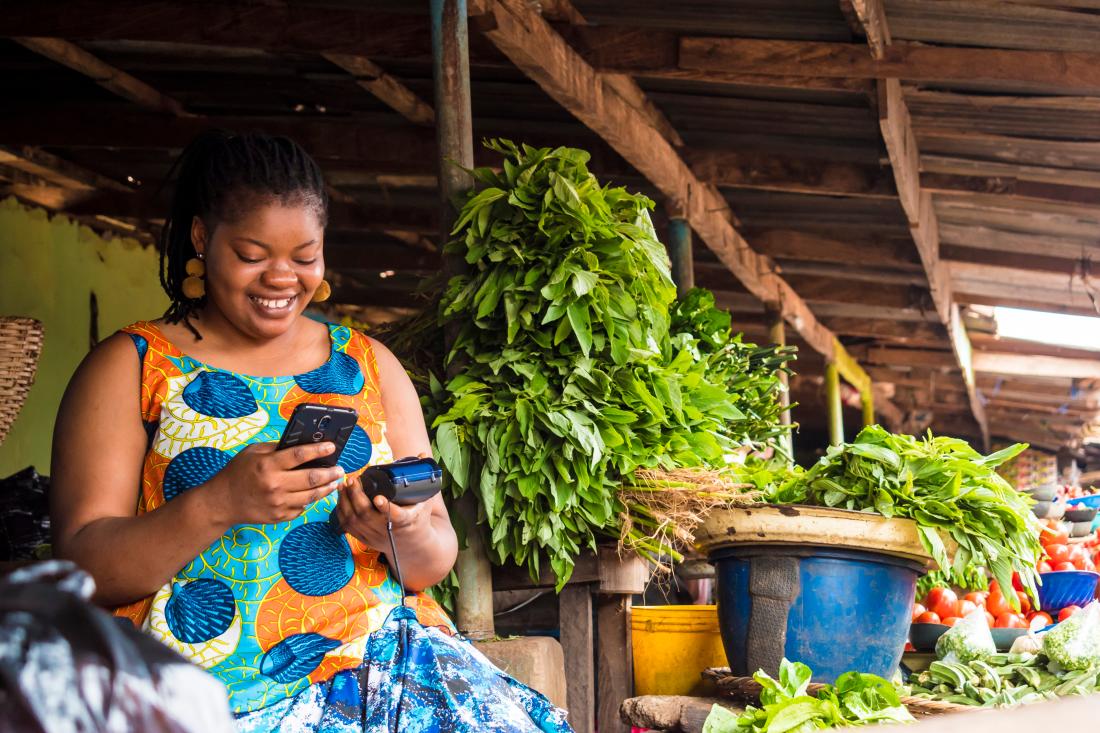Welfare Impacts of Micro-Loans in Nigeria
- Adults
- Earnings and income
- Consumption smoothing
- Credit balance/repayment
- Mental health
- Monetary incentives
Short-term, high-interest digital loans via mobile phones are becoming increasingly popular in low- and middle-income countries. In Nigeria, researchers worked with a financial service provider to evaluate the impact of digital loans on welfare. Being approved for the loans increased subjective well-being after three months, for applicants who normally would have been denied. Researchers found no impacts on other welfare measures such as income, resilience, or women’s economic empowerment in the short term.
Policy issue
Digital credit loans, or small loans available via a mobile phone to people with no formal financial history, have become very popular in low- and middle-income countries in the past several years. In Kenya, for example, a 2018 survey showed that 27 percent of adults had an outstanding digital credit loan—much higher than microfinance (less than 5 percent).
Although there is significant demand for these loans, it is not clear that they are beneficial to consumers, as the products often carry high interest rates and have opaque terms and conditions. Conversely, increased credit access could positively benefit households and small enterprises through accessible liquidity to help cope with shocks. As digital financial services offer new avenues to increase financial inclusion by reducing barriers to financial products, understanding their impacts on borrowers is critical.
Recent literature on digital credit has found positive effects, particularly regarding household resilience to shocks and financial well-being. Other studies on microfinance have found that having access to microloans can reduce depression but also found that it may increase stress. How do small, instant digital loans affect borrower welfare in Nigeria?
Context of the evaluation
In 2019, compared to neighboring countries, Nigeria had high financial inclusion rates, with just over half of adults using formal financial services. Additionally, almost 90 percent of Nigerians owned mobile phones, and 28 percent of adults used digital financial services . Though market penetration of formal financial services is still rather low, there are over fifty companies that offer digital loan products.
In this study, researchers partnered with a large Financial Service Provider (FSP) operating across Nigeria. The FSP allowed customers to apply for loans via a smartphone application and assessed creditworthiness using behavioral data from their smartphone. Applicants needed a bank account to register, but formal financial history was not necessary. Loan sizes ranged from US$2.60-US$528 and were due after 28 days, with monthly interest rates of 15 to 22 percent.
Study participants included 1,618 credit applicants, of which 76 percent were male. The average age was 30 years old, and most participants had completed secondary- or university-level education. Study participants took an average initial loan of approximately US$15, and an average total loan amount of US$56 over the three-month study period.

Details of the intervention
Researchers partnered with a popular FSP to conduct a randomized evaluation to test the impact of small digital loans on measures of welfare.
People who installed the FSP’s smartphone application between August 2019 and February 2020 were included in the evaluation. The participants were cross-randomized into two intervention groups:
- Auto-Approval: Half of the participants were approved for digital credit automatically, no matter their credit score. The other half only received approval if their credit score exceeded a set level.
- Initial Loan Value: Applicants that did receive approval were assigned a maximum initial loan offer that ranged from US$2.75 to US$35.75, selected at random. On-time repayment of the initial loan enabled participants to become eligible for future loans in line with the FSP’s standard policies.
All 46,937 applicants that installed the application were invited to participate in a phone survey, and this study focuses on a subset of 1,618 that completed a phone survey roughly three months after installing the FSP’s smartphone app. The survey collected information on respondents’ demographics and their household members, financial behavior, well-being, and household decision-making.
Results and policy lessons
After an average of three months of access to digital credit, the subjective well-being of applicants increased. The interventions had no significant impact on other dimensions of welfare such as income and expenditures, resilience, and women’s economic empowerment.
Impacts on borrowing: Both interventions increased the amount that applicants borrowed. Being auto-approved for loans increased borrowing from the FSP by an average of US$30. Applicants that would normally fall under the threshold of being able to take a loan also substituted away from informal sources of credit. The initial loan value group increased their borrowing by US$1.24 for every US$1 increase of the initial offer.
Subjective well-being: Having access to digital credit through auto-approval increased subjective well-being substantially, while the amount that a borrower could access had no significant impact.
Other welfare impacts: The expansion of access to credit had no significant effect on women’s economic empowerment or financial health measures. It also did not significantly impact applicants’ self-reported ability to cope with negative shocks; though the results suggest that auto-approval may have helped people manage shocks without selling assets.
Overall, the findings suggest that even small relaxations on barriers to accessing credit can substantially improve mental health, with impacts of a similar magnitude to those of costlier anti-poverty programs.


